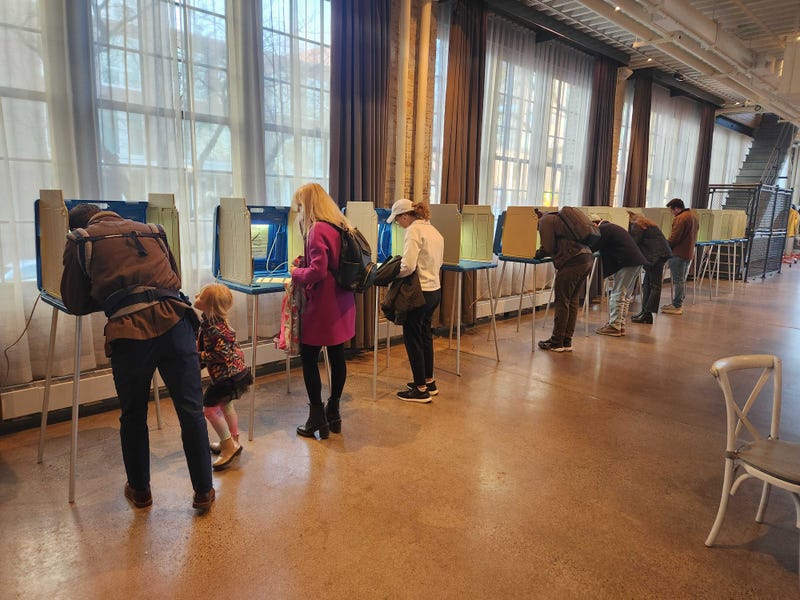
Tuesday is Election Day and in Minnesota, and here are a couple of Senate races to fill open seats, several referendums in local school districts, but much of the attention leading up to this November 4th has been around the mayoral races in the state two largest cities.
In St. Paul, Mayor Melvin Carter is seeking a third term and faces a stiff challenge from a former staffer and a State Rep. Kaohly Vang Her, along with a local scientist Yan Chen.
Minneapolis Mayor Jacob Frey is also seeking a third term and faces challenges from a number of candidates, including State Sen. Omar Fateh, along with local attorney Jazz Hampton and a local minister, DeWayne Davis.
There are also City Council seats up for grabs in both cities plus a number of other city positions like the park board.
Normally on Election Day, voters can expect to hear some quick results after polls close at 8:00 p.m. local time. That is likely true for the state Senate races which are not expected to be overly competitive, with one in a very strongly conservative Wright County, and another in a DFL stronghold in Woodbury.
But for the mayoral races - you will be waiting. Ranked choice voting is used in both Minneapolis and St. Paul and that process can be much more time consuming. Ranked choice voting is a voting method where you vote for candidates in order of your preference. This allows you to 'rank' your vote - first choice, second choice, and third choice.
This method can allow your vote to count toward another candidate if your favorite candidate loses. If your first choice candidate is eliminated, your vote is moved to your second choice.
"That's one of the things to watch," says WCCO Political Analyst Blois Olson. "The Frey supporters are very confident that he's gonna have a very substantial lead tonight. If he gets over 50% on that first ballot, that is gonna give him a lot of momentum into that third term."
After each round, the lowest ranked candidate is eliminated until one candidate reaches the 50% threshold. And that can take many rounds likely meaning we won't know a definitive winner until sometime Wednesday.
Olson notes that there is a lot of energy in Minneapolis, much more than there was four years ago when Frey won his second term.
"So that'll draw both sides, Fateh supporters, Frey supporters, and then the Hampton and Davis supporters as well," Olson explains. "So that may change turnout, which could lead us to not know until late tomorrow who the winner is."
Frey cast his ballot about an hour after the polls opened Tuesday in Northeast Minneapolis and he brought the entire family along.
"Election day is always fulfilling and you always get a sense of optimism in the air, but at the same time, when I get to vote alongside my extraordinary wife, Sarah, and Frida and now Estelle, it's something really special," Frey said.
Frey's parents recently moved to Minneapolis from Virginia, and they voted early as did 23,000 people in the city. Frey says he'll some more door-knocking Tuesday before the polls close.
On the statewide level, the two senate seats that are open will fill terms held by the late Bruce Anderson and Nicole Mitchell, who was convicted of burglary charges. Those races could tip control of the state Senate.
